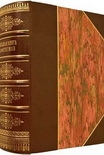The Best of World SF by Lavie Tidhar (best romance novels of all time TXT) 📗

- Author: Lavie Tidhar
Book online «The Best of World SF by Lavie Tidhar (best romance novels of all time TXT) 📗». Author Lavie Tidhar
Also, we’re gonna do another Cyro/Ellison comic in the future, and we’re thinking of making it part of an anthology. If you’d like to contribute comics or illustrations for that, let us know!
Get ready to draw lots of boxes, people! The robot revolution is coming!
9,890 replies
Virtual Snapshots
Tlotlo Tsamaase
Botswana
Quietly and without much fanfare, Tlotlo Tsamaase has been publishing exceptional short stories in some of the top SF magazines, and drew my eye almost immediately. She is most recently the author of the exceptional The Silence of the Wilting Skin, her first novella in book form, and I can’t wait to see what she does next. Here, she turns her poetic attentions on a near-future Africa of climate and digital change.
Thirteen years ago when I was three years old, the sky used to be a clean blue, curving outward to meet the horizon. The sun was a bright burning spot and the stars candles in the night. Men’s hearts weren’t oiled in evil. The shift from day to darkness was seamless, dividing activities. It hadn’t rained for so long that all the water stored for the Harvest, as the time was called, was insufficient. Our villages survived on an Aquaculture system, tending to the water-creatures to cultivate the food we needed. The dome had been created to protect us from the destructive environment we had orchestrated. It was a righting time.
The day it rained, we were shaken. The sound of a bomb exploded above us. First we thought the sun was dying, sending flames to torch our world. But the dome had shattered. Instead of shards of glass, soft drops of water soaked the cracked earth and moistened our bare feet. We screamed, ‘Pula! Pula!’ The children ran into the heavy drizzle, mouths open to the sky. I remember that first taste of rain: exotic, addictive. Dangerous. We didn’t know what we were drinking then. We were delighted: old women ululated whilst sweeping the ground with Setswana brooms. The paranoid ones got their metal bathtubs out to collect this last hope of survival.
It was the transformation from the old world to DigiWorld.
(I)
Now:
It has been seven hundred and thirty days since I left the house.
Two years.
Well, physically.
Our joints are painful due to immobility. No praying in the mosque, legs dusted by a beg for God. A god composed of zeros and ones, face etched in lines of lightning, the moon his nose, an impression of cloud in sky.
Our physical selves are latched to glass pistons by way of plastic tubes feeding medicine into our narrow veins. Machines beep our lives across limbs of time. We sleep in dark home-cells, little bulbs lighting our prison, and sweep through the door in our avatar versions.
These are things we are told to remain in safety’s skin. Abide the laws. If you wake, do not detach yourself. If you pain, do not bend to relief. If you itch, do not scratch. In us, our souls are halos, waning, flickering – the light gone.
I can’t remember the last time my skin was brown. Outside DigiWorld, it is expensive to maintain our health, which is why when we partially disconnect we must pay fees to keep us breathing.
But today I must leave. A message had slipped into my visual settings:
Older sister: Hela wena! Mama is unwell. Get here now. Outside DigiWorld, you know she ain’t connected.
Me: The minute I step out of this door, I will need funds to sustain me in the environment outside of my house.
Older sister: Chill, sisi wame, we will compensate you for your travels and your life. You are still family, mos.
Pfft. Family, se voet! They kicked me out and never kept in touch. I’ve been living in a servants’ quarter for years.
If I hide behind these walls I won’t see the thing they talk about: Mama’s pregnancy. It could be her death. I will regret my life if I don’t see her.
(II)
I have a few financial units that will last me on my journey. I push open the door. Stars fall in streams of light, soft as rain. Slate-blue eyes mock the beauty of the sky.
Botswana. I don’t want to denote it the common cliché term ‘hot and arid’ because I hate to be another stereotype of limited description. It’s landlocked. It’s suffocated. It’s variety. It reminds me of the ocean, not in the literal sense, nor rather the freedom eloquence, but like the ocean it has borderlines you can’t see. We understand technology. We sit at computers and understand what we type. Our cars are not donkey carts. Our houses have corners, and we don’t have lions or animals of the wild parading the city centre, but some men are more beast than human.
The rank is a chortling beast, fattening out into the city. A vendor scrambles to me, holding rotten goods to my face. ‘You want, sisi?’
A rumbling, croaking noise alarms the state constituents to awake. Sun alarm. The sun creaks. Creaking, creaking, creaking – machinery screws, pipes twist, grinded by laborious mine-worker hands. Sunrise, sunsets beg to be heard.
Why were my sunlight rations depleted? Hadn’t I been in line yesterday to escape the rise in sunlight prices, effective today?
I’m close to my mother’s residence, a place of warmth. A place I was thrown out from because I had reached the age of independency – because I was not from her womb. I had to fend for myself, a pariah unfit for their royal





Comments (0)